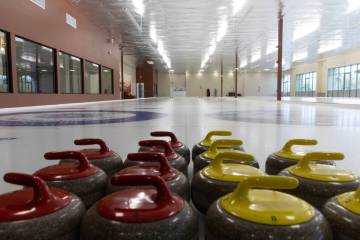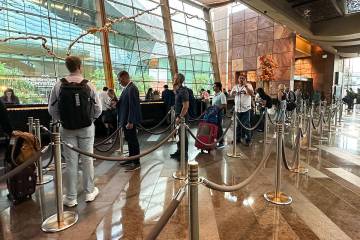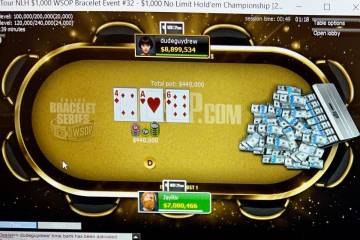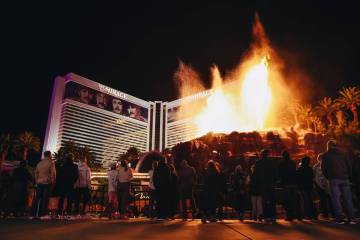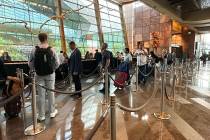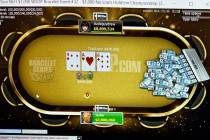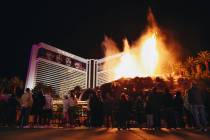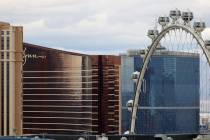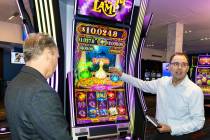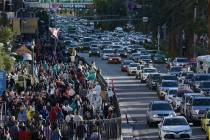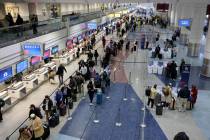Casinos in Japan? Bet your last yen on it
It’s game on, Japan.
Word leaked out this past week that two Nevada casino companies have made inroads with Japanese officials to build a nearly $5 billion hotel-casino in Osaka. Now other gaming operators have their corporate jets pointed toward the east Asia island nation.
The only thing missing is legislation authorizing casinos.
Analysts and gaming leaders consider it a foregone conclusion that Japan, after years of toying with legalizing casinos, will finally approve a gaming bill this spring.
Japan wants gaming taxes to fund construction of nearly $2 billion in venues and infrastructure for the 2020 Summer Olympic Games in Tokyo.
The casino industry considers Japan the next Macau, which produced a record $45.2 billion in gaming revenue last year, but Singapore is a much better comparison. That market’s two casino-resorts produce almost as much in annual gaming revenue as Las Vegas, which topped $6.2 billion in 2012.
Union Gaming Group, which held a well-attended conference on Japanese gaming expansion in Tokyo last fall, predicts the market could produce $10 billion in annual gaming revenue. Other analysts go as high as $15 billion annually.
“Demographics do support higher numbers,” Deutsche Bank gaming analyst Carlo Santarelli told investors.
Most believe Japan’s legislation will call for four casinos; one each for the major cities of Tokyo and Osaka and two regional areas that will determined. The developments will be integrated resorts — hotel-casinos with convention space, dining, shops and entertainment.
“Foreign investment is viewed as essential to success in the two major cities, and hence we suspect they will see majority foreign ownership,” Tokyo-based Macquarie Securities gaming analyst David Gibson said. “Regional will have more local involvement.”
Japan is especially enticing for companies such as Caesars Entertainment Corp., which is shut out of the Macau market.
Bloomberg News reported last week that Caesars executives held preliminary discussions with the Osaka government about building a resort in Japan’s second-largest city and toured potential sites there.
Caesars International Development President Steven Tight confirmed to Bloomberg News the company’s interest in Japan, which spans more than a decade.
Most prognosticators give Las Vegas Sands Corp. the edge in landing one of the Japanese licenses. Its success in Macau, where it operates four resort complexes and is building a $2.7 billion Paris-themed hotel-casino, is widely known. Las Vegas Sands also operates the Marina Bay Sands in Singapore, one of the city-state’s two casinos.
Malaysia-based Genting Group is also considered a favorite. The company operates the other Singapore hotel-casino and a casino attached to the Aqueduct Race Track in New York City. Genting is also planning the $2 billion Resorts World Las Vegas.
Santarelli, who held investor meetings in Japan earlier this month, said Las Vegas Sands is “uniformly viewed by everyone we spoke to as the leader for a Tokyo license.” Genting’s Asian connections, he said, makes it a leader for the Osaka license “almost by default.”
Santarelli added that MGM Resorts International and Wynn Resorts Ltd., could win one of the licenses. Both operate in Macau.
“Speculation regarding partnerships and land sites in Tokyo has been rather broad,” Santarelli said. “Given what we view as a position of strength in Tokyo stemming from the company’s resume, it is our belief that competition for the Osaka and resort destination licenses is likely to be greater than what Las Vegas Sands faces in Tokyo.”
Gibson told investors the Japanese casino legislation has been written. The deadline to pass final legislation was reduced from two years to one year.
“The bill now looks to be delayed until the end of the next parliamentary session or as late as May 2014 with other legislation taking priority,” Gibson said. “This means final legislation in May 2015 and hence the first casino in Tokyo should open prior to the 2020 Olympics, as was originally hoped, despite the legislative delay.”
A gaming tax rate for Japan hasn’t been determined, but the “Singapore model” is most often discussed. Singapore has two rates. Revenue from high-end customers who maintain a minimum bankroll of $100,000 in Singapore dollars ($78,208 U.S.) are taxed at 5 percent. Other gaming revenue are taxed at 15 percent. There is also a 7 percent “goods and services tax” on all gaming revenue.
“It is loosely believed the state will determine the primary gaming tax rate with local governments having the ability to assess an incremental tax on their operator,” Santarelli said. “But again, nothing is firm on this point.”
The award of the 2020 Summer Olympic Games to Tokyo in September was viewed as a catalyst by some for Japan to end its long-held opposition to casinos. Tokyo’s Olympic bid committee estimated the games would have an economic impact of nearly $30 billion and would create 15,000 jobs.
According to Bloomberg News, Japanese leaders see casinos as offsetting declining television and electronics industries, which have cut factory output.
Meanwhile, Nevada’s major casino companies stand ready to invest billions of dollars in expansion of global gaming.
Howard Stutz’s Inside Gaming column appears Sundays. He can be reached at hstutz@reviewjournal.com or 702-477-3871. Follow @howardstutz on Twitter.




